A 9-year-old transgender boy who became an instant internet sensation. Trans protesters who occasionally interrupted the proceedings. A description of conversion therapy as "torture." And an awkward mention of bathhouses. Those were among the highlights of the LGBTQ Power of Our Pride Presidential Candidates Town Hall held in Los Angeles Thursday night.
The CNN/Human Rights Campaign Foundation event, televised on CNN, featured nine contenders for the Democratic presidential nomination: in order of appearance, U.S. Sen. Cory Booker, former Vice President Joe Biden, South Bend, Ind., Mayor Pete Buttigieg, U.S. Sen. Elizabeth Warren, U.S. Sen. Kamala Harris, former U.S. Rep. Beto O'Rourke, U.S. Sen. Amy Klobuchar, former Housing and Urban Development Secretary Julian Castro, and businessman-philanthropist Tom Steyer. They took questions from the audience at the Novo Theatre in downtown L.A. and from CNN moderators Anderson Cooper, Don Lemon, Chris Cuomo, and Dana Bash.

Cory Booker
The candidates agreed on many matters: the need to pass the Equality Act, which would ban anti-LGBTQ discrimination in employment, housing, public accommodations, and other venues on a national basis; to get a favorable ruling on LGBTQ rights in the cases the Supreme Court heard this week; to reverse Donald Trump's transgender military ban and other anti-equality actions by his administration, such as the withdrawal of protections for trans students; to address hate crimes, including the epidemic of violence against Black transgender women; to reduce homelessness and suicide, which disproportionately affect LGBTQ people, especially youth; and to make health care, including prescription drugs, more accessible and affordable. There were some differences in the details of their plans, but on the whole they were united when it came to the big picture.
But there were some standout moments. Warren got a warm welcome from the audience and several laughs. The first question put to her was what she'd say to someone who's old-fashioned and believes marriage is between one man and one woman. She said, assuming the person was male, "I'm gonna say just marry one woman ... assuming you can find one."

Elizabeth Warren
Warren got the most response, though, for her interactions with 9-year-old trans boy Jacob Lemay, attending with his mother, Mimi. "What will you do in your first week as president to make sure that kids like me feel safer in schools?" asked Jacob, who became an immediate hit with the audience and on the internet. "And what do you think schools need to do better to make sure that I don't have to worry about anything but my homework?"
The senator replied that she'd pick a good secretary of Education, someone who's not Betsy DeVos, Trump's appointee, but she'd have her nominee meet with Jacob and get his approval. "Does that sound good?" she said. Jacob seemed satisfied.

Beto O'Rourke
When another young trans boy came up to ask a question during O'Rourke's session, however, Black trans woman Blossom C. Brown interrupted the proceedings, noting that no Black trans woman had been given the chance to ask a question yet. Lemon, who was moderating the session, said, "The reason why we're here is to validate people like you." When another audience member objected to Lemon's courtesy to Brown, the journalist replied, "This is what democracy looks like." Earlier, when Buttigieg was appearing, a group of protesters had marched through carrying banners and chanting, "Trans lives matter."
At least one Black trans woman, singer-songwriter Shea Diamond, spoke from the audience later in the evening, asking Castro if he would have transgender advisers, and replied that he would. He said he had always advocated for trans inclusion, both at HUD and in his previous post as mayor of San Antonio. He denounced recent anti-trans comments by his successor at HUD, Ben Carson, and said Carson should resign.

Julian Castro
Fellow Texan O'Rourke's appearance was also marked by his description of conversion therapy as "torture, visited on children that are defenseless." The candidates generally endorsed a national ban on the discredited practice, designed to turn LGBTQ people straight or cisgender, but O'Rourke's statement was especially strong.
Biden, who remains the front-runner in many polls, said the fact that he came out for marriage equality a few days before President Barack Obama did in 2012 "caused no consternation at all" in the White House and that Obama even gave him a kiss when he went to work the next day. He also recalled that seeing two men kissing when he was a youth on the way to apply for a job helped him grow up without prejudice, as his father told him, "It's simple, honey. They love each other." (No one quizzed Biden on his vote for the Defense of Marriage Act in 1996.)

Joe Biden
He surprised the audience a bit, though, with an awkward reference to gay bathhouses at the end of his appearance, saying the stereotype of gay men used to be that they were frequenters of bathhouses and "it's all about around-the-clock sex." He added, "Come on, man. Gay couples are more likely to say together longer than heterosexual couples."
There was a little more awkwardness when Harris took the stage. After she announced, "My pronouns are she, her, and hers," Cuomo replied, "Mine too," apparently not realizing he was making light of something important to transgender people. After backlash on social media, he tweeted an apology, saying, "I am an ally of the LGBTQ community, and I am sorry because I am committed to helping us achieve equality."

Kamala Harris
Other noteworthy moments:
Buttigieg, only the second major-party presidential hopeful who's openly gay (Republican Fred Karger was the first), talked about coming out while up for reelection as South Bend mayor--and getting reelected with 80 percent of the vote--and addressed perceptions that as a white cisgender gay man, he's maybe not the right representative of the LGBTQ community.
"I'm very mindful of the fact that my experience as a gay man, but as a white, cisgender gay man, means that there are dimensions, for example, of what it's like to be a black trans woman that I do not personally understand," he said. "But I also think the diversity within the LGBTQ+ community is part of what we have to offer right now. ... There is no right or wrong way to be gay, to be queer, to be trans. And I hope that our own community, even as we struggle to define what our identity means, defines it in a way that lets everybody know that they belong among us."
He and several other candidates addressed the intersection of religion and LGBTQ identity, with Buttigieg noting that his love for his husband, Chasten, makes him feel closer to God. Castro pointed out, "There are a lot of people in the LGBTQ community that are also people of faith. ... But, you know, the other side always acts like those two are completely separate." Klobuchar talked about being a member of an inclusive church but noted, as other candidates did, that religion should never be an excuse to discriminate: "One faith doesn't trump another faith."

Amy Klobuchar
The candidates underlined the need not only to unseat Trump but to flip enough seats in the Senate to assure a Democratic majority there. Klobuchar mentioned that the Equality Act, which has been passed by the House, "is lying in the graveyard that is Mitch McConnell's desk." Senate Majority Leader McConnell has refused to advance many progressive pieces of legislation that have been approved by the Democratic-controlled House.
They also talked about the need to make prescription drugs more affordable and accessible, including those used in HIV treatment and prevention. Booker praised California's recent enactment of a law, signed by Gov. Gavin Newsom this week, to make drugs used in HIV prevention available without a doctor's prescription if certain conditions are met. Several talked about ways to make prevention drugs available at cost and to end monopolies on them. Steyer called out big pharmaceutical companies' influence in politics: "We have a group of corporations led, really, by the drug companies who've bought our government."
Harris discussed health disparities based on race, noting that Black men have a disproportionately high rate of HIV. "It is still much higher because the hierarchy still exists within the community around access to health care, housing, employment, and things of that nature," she said. "So I will, as president, I commit to you, deal with all of those, but also we need to deal with it in the context of having a commitment, which is my commitment, that within a generation we will end HIV/AIDS." Booker noted that populations most at risk for HIV are often those with least access to prevention drugs, motivating his call for lowering the price of Truvada, until recently the only drug approved for the prevention strategy known as pre-exposure prophylaxis, or PrEP.
Several candidates talked about how knowing a member of the LGBTQ community can make straight and cisgender people into allies. But Booker, who was asked about an article he once wrote on overcoming his own homophobia, noted that it's not always possible to change hearts and minds: "I can't pass a law to change the heartless, but I can change -- pass laws to restrain their violent actions." And support for rights shouldn't be contingent on knowing somehow who's affected, he said. "If we wait for our empathy to expand in that way we will never get to being the nation of liberty and justice for all, you know?" he said.
Many other issues came up, including gun violence, the gay and trans panic defenses, LGBTQ-inclusive school curricula, using trade policy to encourage LGBTQ equality abroad, sex work, criminalization of people with HIV, lifting the ban on blood donation by sexually active gay and bisexual men, and much more. Find even more coverage here.

Tom Steyer


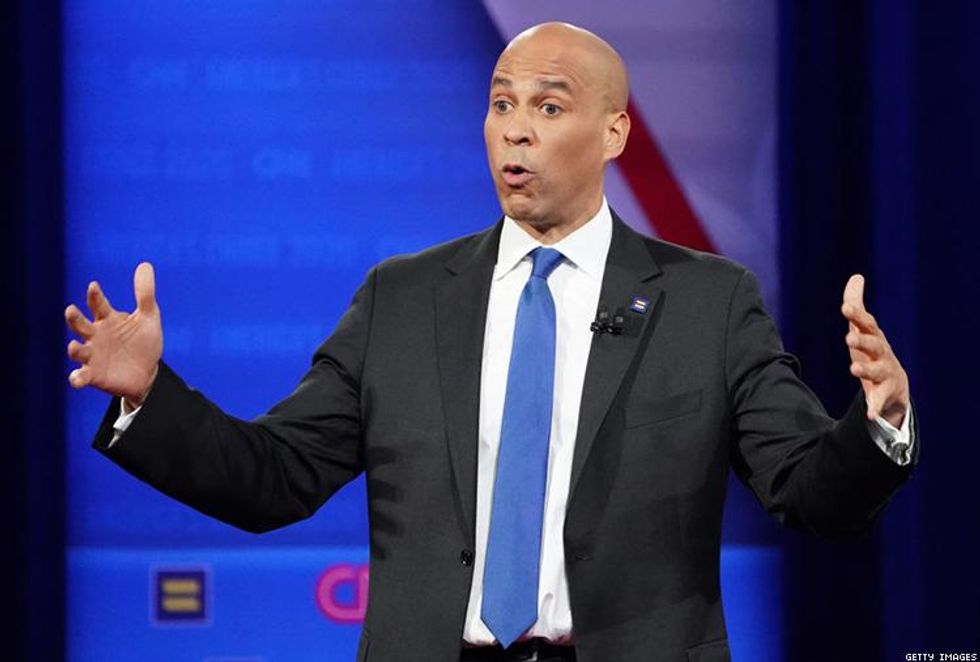
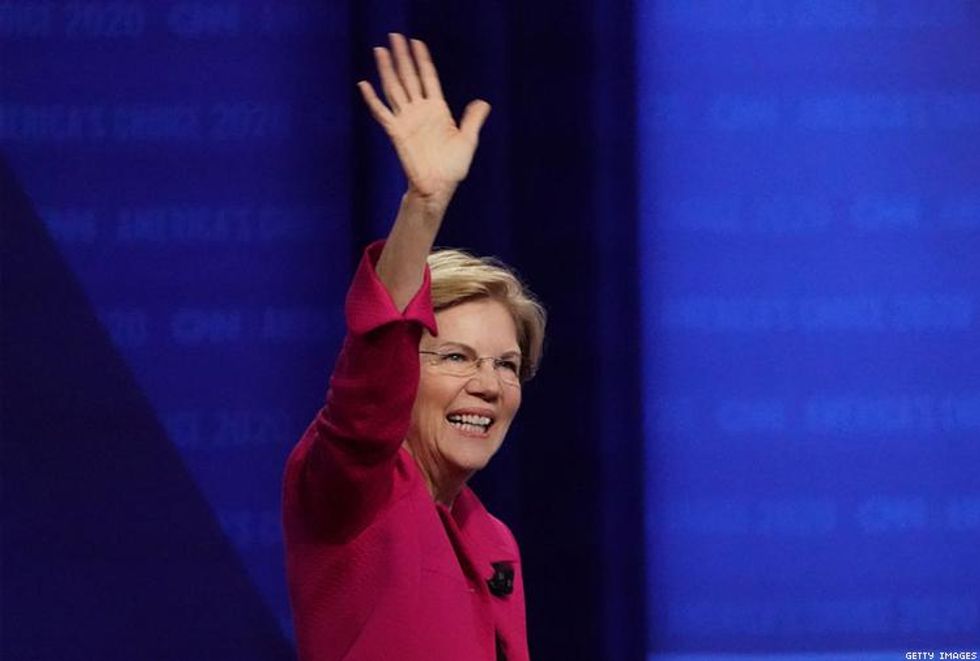
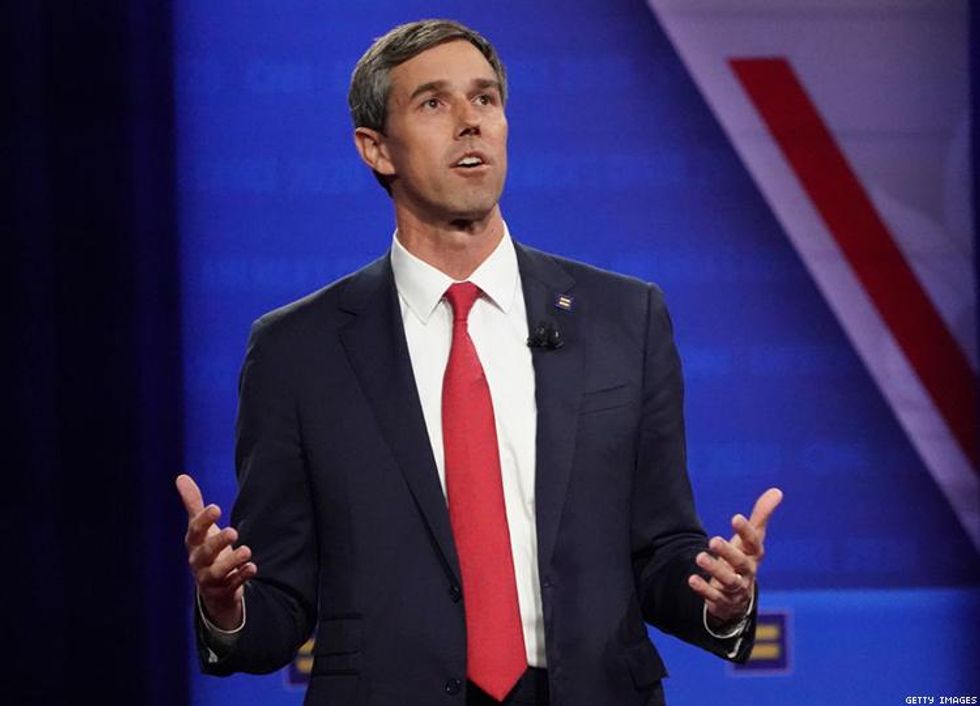
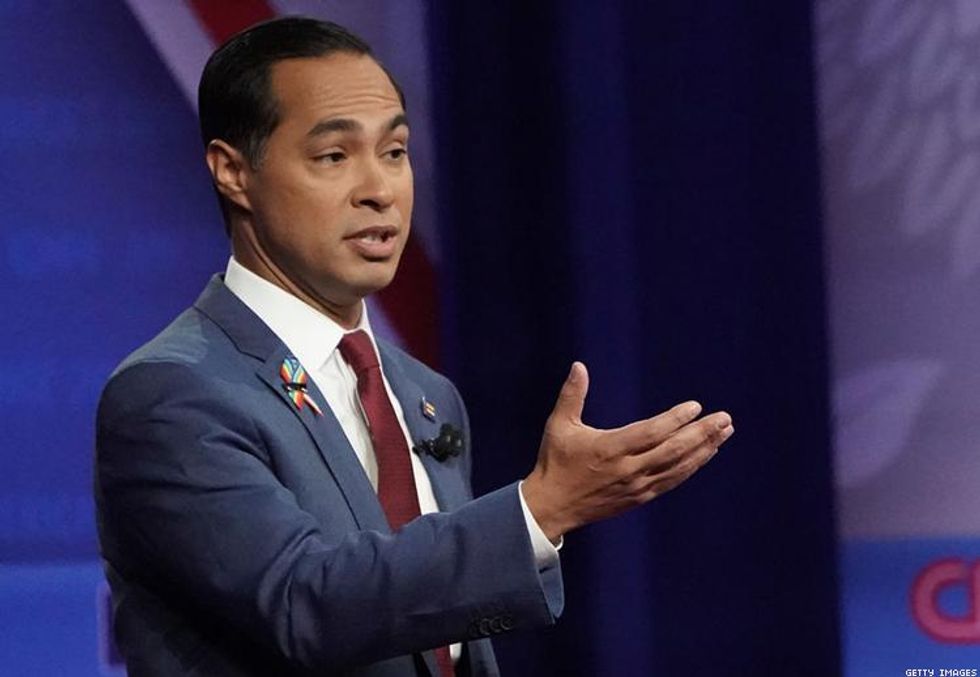
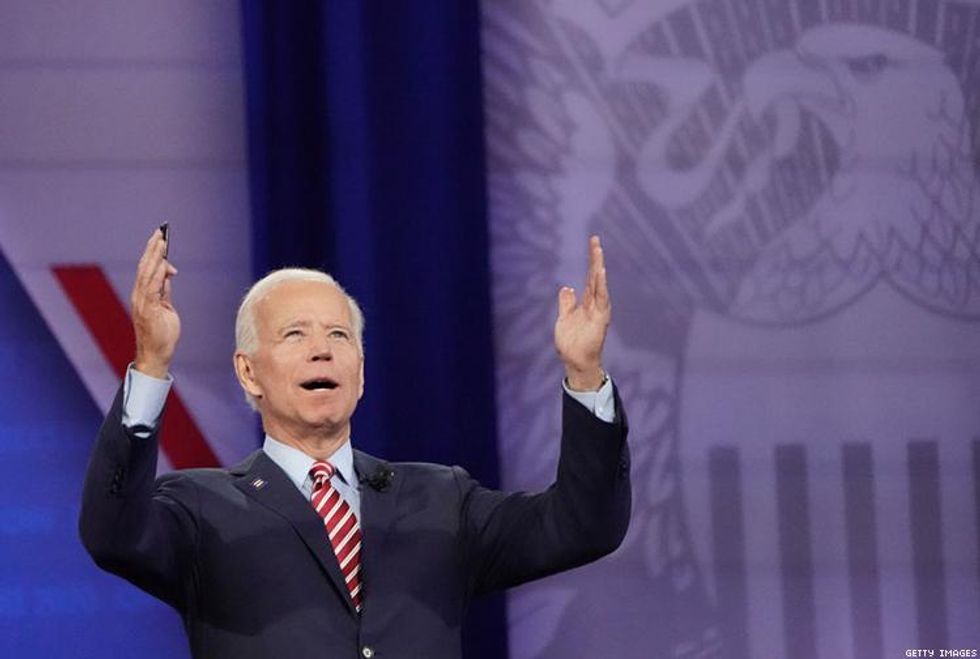
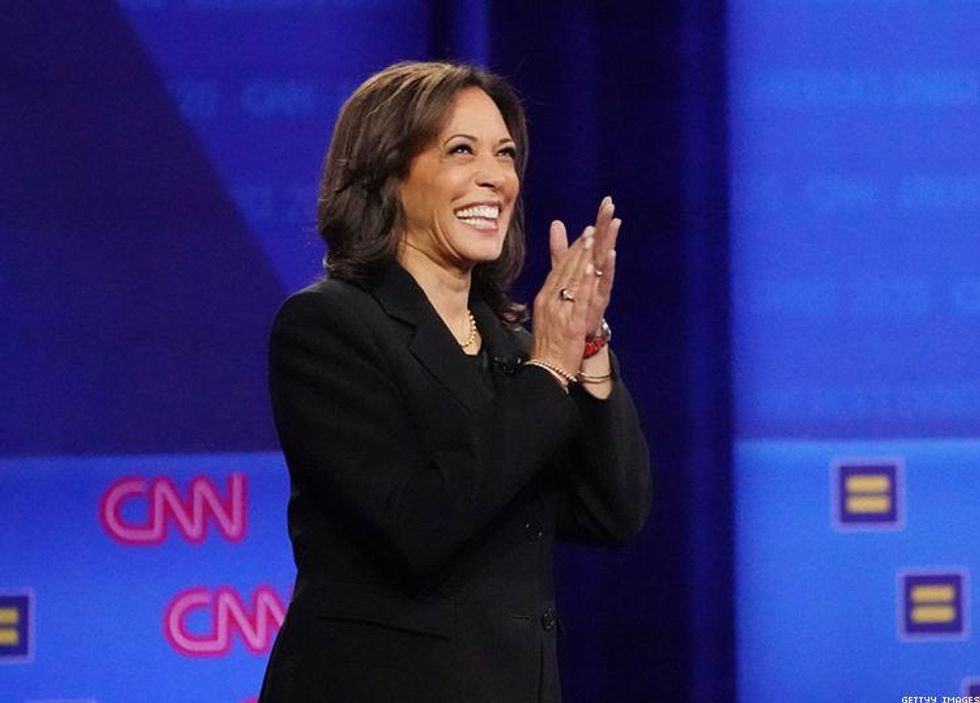
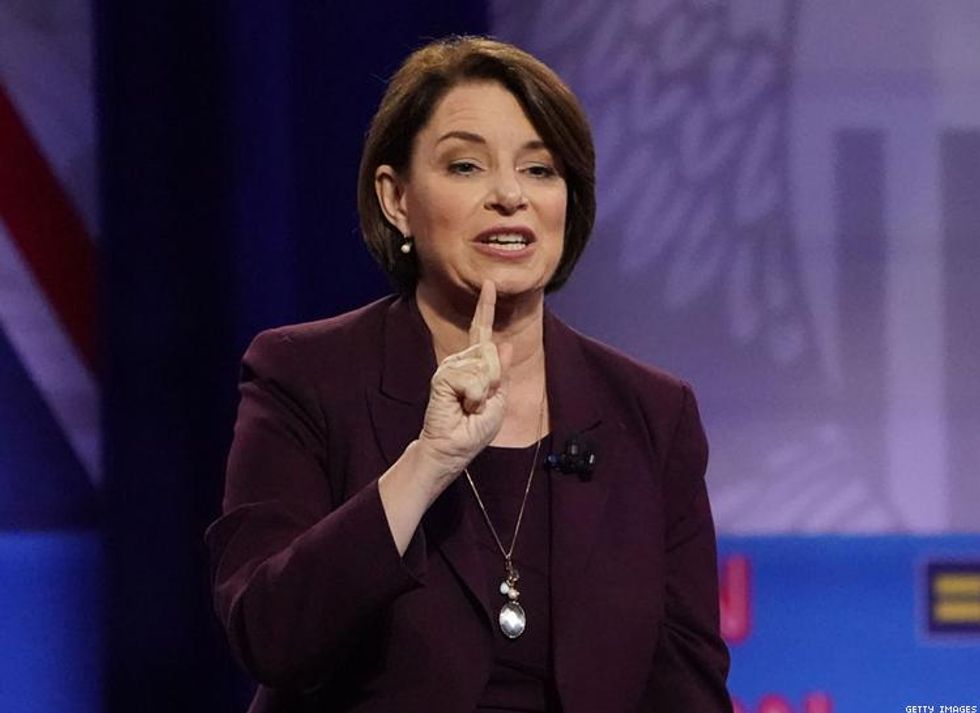
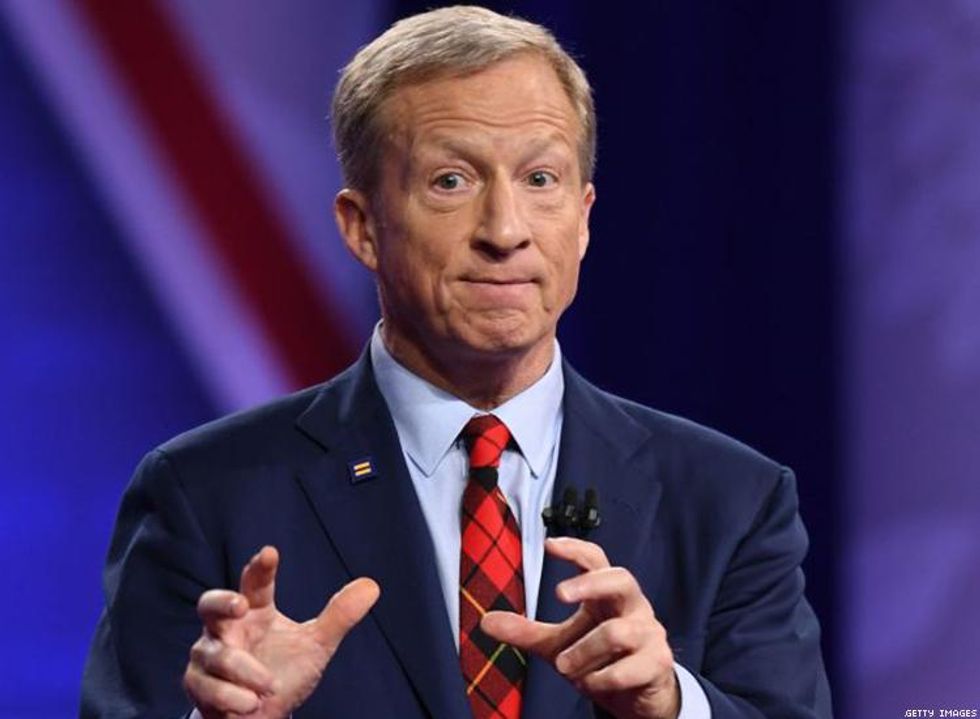


































































Charlie Kirk DID say stoning gay people was the 'perfect law' — and these other heinous quotes